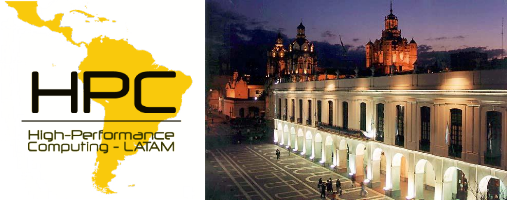
Tobias Klug,
Department of Informatics, Technological Univ. of Munich.
"On the Importance of Thread Placement on Multicore Architectures".
Financiado por Intel Chile.
Short bio: Tobias Klug received his Ph.D. in Computer Science from Technische Universität München, Germany. He developed methods for determining the optimal thread to core placement (pinning) for parallel applications with respect to a given objective function, e.g. shortest possible program execution time or lowest energy consumption. He implemented a tool to assist users with no background in computer architecture to find the optimal pinning for his or her application according to the desired target platform. From 2009 he has worked at the ABB Corporate Research Center, Switzerland. He is involved in the European FP 7 Marie Curie project CASOPT (Controlled Component- and Assembly-Level Optimization of Industrial Devices) as an experienced researcher. In addition to ABB, University of Cambridge, Graz University of Technology and Technische Universität München are project consortium partners. Within this project, Tobias is responsible for the shared and distributed memory parallelization of a fast boundary element solver. Tobias is an associate member of the International Graduate School of Science and Engineering (IGSSE). His research interests comprise automatic online performance analysis, microprocessor architectures with a special emphasis on multi- and many-core processors and parallel programming languages and paradigms.
Bill Magro,
Director of HPC Software Solutions at Intel.
"Intel’s Many‐Integrated Core (MIC) Architecture and HPC ".
Financiado por Intel ASDC.
Short bio: Bio: Bill Magro is Director of High-Performance Computing Software Solutions at Intel. Bill has worked in the field of HPC for over 20 years. He joined Intel as part of the acquisition of KAI Software, where he was product manager of parallel tools. Prior to KAI, Bill was on staff at the Cornell Theory Center, an NSF-funded supercomputing center. Bill holds a Ph.D. in computational physics from the University of Illinois and a B.Eng. in Applied and Engineering Physics from Cornell University
Diego Crupnicoff,
Senior Architect, Mellanox Technologies.
"The Road to Exascale; Advances in High-Performance Interconnect Infrastructure"
Financiado por Mellanox Technologies.
Short bio: Diego Crupnicoff is Sr. Director of Architecture at Mellanox Technologies. Diego has been with Mellanox since 1999 driving chip and system architectures for 5 generations of Mellanox products. He has been a member of the InfiniBand Trade Association since its very early days, actively participating in the definition of the IB Standard and currently chairing the Technical Working Group. Diego is also a member of the IEEE 802.1 group that defines the next generation of Ethernet networks and the T11 committee that is in charge of the Fibre Channel specification. Diego is an inventor of multiple patents in the areas of computer networks and system architectures, and holds a B.Sc. in Computer Engineering (Summa Cum Laude) and a M.Sc. in EE. (Summa Cum Laude) both from the Technion - Israel Institute of Technology.
Lisandro Dalcin,
Centro Internacional de Métodos Computacionales en Ingeniería, CONICET, Santa Fe, Argentina.
"Parallel Distributed Computing using Python".
Short bio: Lisandro Dalcín obtained his PhD in Engineering from Universidad Nacional del Litoral (Santa Fe, Argentina) in 2008. HIs first degree is in electromechanical Engineering from Universidad Tecnológica Nacional (Concepción del Uruguay, Argentina). In 2010, he joined the National Council for Scientific and Technological Research of Argentina (Consejo Nacional de Investigaciones Científicas y Tecnológicas) as an Assistant Researcher. Dr. Dalcín is the author of mpi4py and petsc4py / slepc4py — a set of bindings for the MPI standard and PETSc / SLEPc libraries targeting parallel distributed computing with the high-level scripting language Python. He is a semi-regular contributor to the Cython project and also contributes to the development of the PETSc library. He won the R&D 100 Award in 2009 as part of the PETSc team.
Eduardo Bringa,
CONICET e Instituto de Ciencias Básicas, U.N. Cuyo, Mendoza, Argentina.
"HPC for analysis of atomistic simulations".